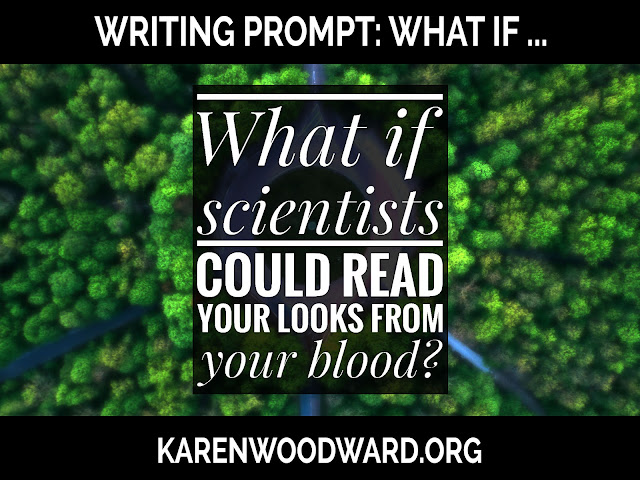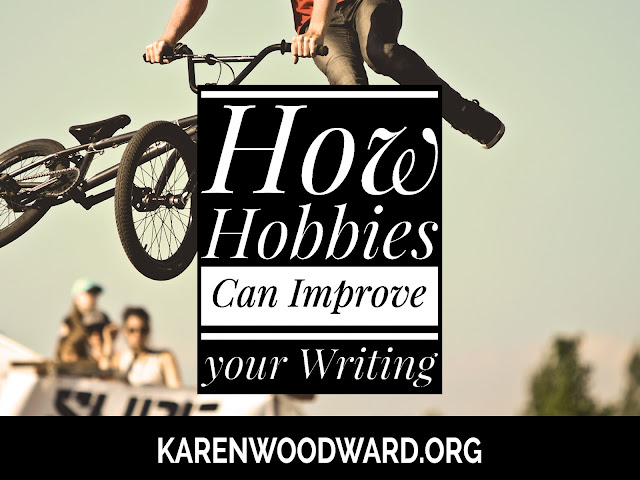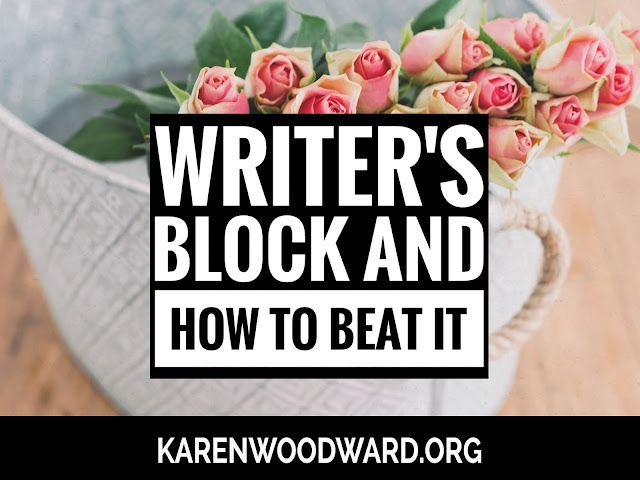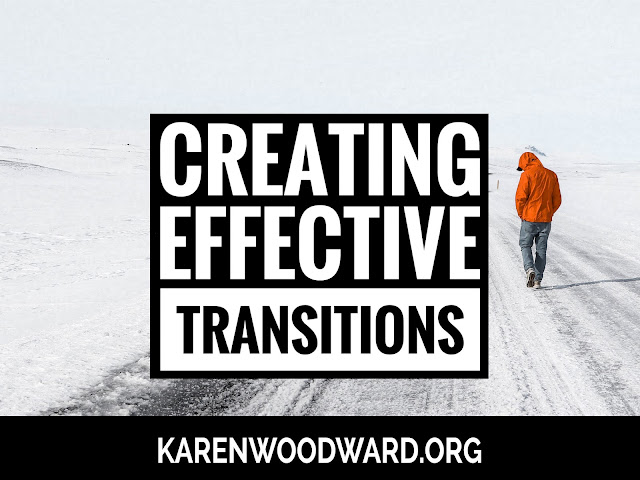In the past I’ve shared articles I thought were particularly insightful about what makes a story a good story. This time I'm sharing a video from PSA Sitch.[1]
IMHO, Sitch is excellent at analysis and I love the quirky style of his video creations. I don’t agree with everything Sitch says, but he makes several insightful points about the nature of an entertaining story -- or at least one specific type of story. I highly recommend
his video.
I hope PSA Sitch doesn’t mind my doing this, but in what follows I list some of the insights he shared in this video, ones that made me excited about this wonderful, magical, thing we call storytelling.[2]
I’ll provide a more detailed discussion, below, but here’s an overview:
(BTW, everything I write in this article is specifically about sequels.)
At the end of your first story, your hero has gone through his arc, he has achieved his goal (your particular story’s version of the holy grail) and returned to his community and used what he discovered, his prize, to make it better.
In your next story your former hero needs to be knocked down a few notches, he needs to be ordinary-ish again. The new, younger, hero finds him, rescues him, and in so doing the former hero is symbolically reborn. The former hero and the new hero head off on an adventure together. As they adventure, the former hero teaches the younger hero and this creates a bond between them, one that makes them both better. Stronger. At the end of their adventure they achieve their goal (their partnership was essential for this) and reinvigorate their community.
So, let's get started!
10 Things That Make an Sequel Worth Reading
1. Fall from grace.
In a sequel, if the series character, the former hero, doesn't have a fall from grace there can be no character arc. If there is no character arc, if the hero of the first story never changes, the protagonist -- and therefore the story -- will be boring.
At the beginning of the sequel, the former hero has lost his way. We need to knock the former hero off his pedestal, we need to humble them. We need to bring him down to the level of the ordinary person. In the first book, at the end, the old hero was larger than life. Back then, he found the holy grail and saved his community. Now he is just like you or I: ordinary.
2. Make the fall from grace realistic.
As we know from real life, the older one gets, the more life experience one has, the greater the chance that bad things will happen to us. We lose people we love, the world changes in ways that seem to exclude us, and we have aches and pains in assorted places.
Sitch warns against making this fall from grace too big. But if you want a big event to topple the former hero, make him react to it in a way that is consistent with core aspects of his character.
For instance, if hypocrisy really bothered the former hero before his fall then it should still bother him.
Perhaps his one true love died and he now sees the world as a hostile place.
But the thing that brings the former hero down doesn’t have to be a big tragedy. The world -- the real world -- is chaotic. Bad things happen to good people. Sometimes the things that batter us are big and horrible and sometimes they are multiple and small. And the more the character hurts, the more they become afraid of the future and fear the unknown. [3]
In the beginning of the sequel, the former hero has become disillusioned. He doesn’t want to take risks because he knows what the cost might be.
3. The former hero, even in his fallen state, needs to be recognizable.
Have remnants of the former character, the qualities that made readers admire him, peek through even though the former hero is a pale version of his former self. Sure, we need to scuff him up a bit but we still need the audience to reconnect with the character, so we need him to be recognizable.
The call to adventure.
In the sequel, the former hero (the protagonist of the series) will initially reject the Call to Adventure.
The former hero has become discouraged, perhaps even cynical. The new hero is the one who needs to come in and reignite the old hero’s zest for life and, with that, his willingness to face his fear and fight for what he loves.
4. Redeem the former hero.
When the former hero finally accepts the Call to Adventure he is, in a sense, reborn. Back in the day, he used to hit the mark (literally and figuratively) but then he began missing AND he stopped caring.
Hope is reignited. Eventually, the new hero is able to create a spark of hope or ambition or caring in the former hero. (I write more about this, below.)
Thinking about this in a mythic sense, the new hero is the son and the former hero is the father. The new hero (the son) comes along and revivifies the former hero (the father). Again -- and Sitch stresses this -- this redemption, how it is accomplished, should be related to both the main arc of the story and the reasons for the former hero's (the father’s) rescue/redemption.
The new hero -- the child -- breaks down the old structures of society represented by the father (the former hero) and literally 're-forms' them bringing together what came before with what exists now. Essentially, he creates (re-creates) the world.
5. Have your former hero become a mentor to the new hero.
Have your more experienced and slightly tarnished former hero become a mentor to the new hero. At first this mentoring might be reluctant. The new hero might be very similar to the former hero, to how the former hero was like when he was younger.
6. Give your former hero a consistent philosophy/worldview.
This is perhaps the most important thing to get right. The former hero must have had a purpose. Yes, sure, he has lost sight of this purpose over the years. He has become cynical and no longer believes in anything
Let's talk about what it means to have a purpose. To have a purpose, a character needs to believe something. They need to have a (even a very simple) worldview.
Sitch gives the example of Spiderman: With great power comes great responsibility. That is his guiding light.
This is an aside: This principle doesn't just apply to heroes/protagonists, it applies to any character that has significant pagetime in your novel. Even antagonists. (Perhaps especially antagonists!)
Take Thanos, the villian from Marvel (this is Sitch’s example). Thanos believed that half the population of the universe had to die to prevent starvation and war. While we understood his goal and even sympathized with it -- who doesn't want to end starvation and war?! -- but the means he was using to attain this goal was evil. But his philosophy/worldview was consistent and understandable and it was a bit part of what made him a great character.
A worldview doesn’t have to be something abstract.
Having a well developed worldview is great, but it's not for every character. You could just give your character something to care about. For instance, having a child immediately gives life purpose because when you’re a parent you have this small person to take care of. Their survival and well-being becomes your purpose.
7. The new hero’s actions should be what saves/redeems/resurrects the former hero.
The former hero teaches the new hero what he knows. He teaches him his philosophy of life as well as whatever skills his has.
This transfer of knowledge serves two purposes. It bonds the characters, makes them a unit. They become mentor and apprentice.
8. The former hero needs their worldview reaffirmed.
I thought that Sitch made an especially interesting observation here. When one person teaches something to another person, and if whatever you teach them helps them to succeed, then it validates your philosophy. When that happens it feels good! The fact that they were able to pass along something valuable gives that character a sense of worth. This is part of the former hero's redemption. This gives them the courage to face their fear of the unknown and risk everything one more time.
(This could be part of an upswing just before the heroes execute their final plan and race to the finish.)
9. Flaws are important.
Don’t be afraid to make your hero a bit flawed. Perhaps the old hero isn’t happy to see their apprentice succeed. Perhaps we see a bit of jealousy lurking in the depths of the former hero’s heart.
This could be one reason why the former hero wasn’t thrilled to mentor the new hero in the first place.
10. Make your new hero incompetent.
At the beginning of your story, when you first introduce the new hero, make him incompetent.
Also, don’t give the new hero a coherent worldview, make them confused. They don't know what they want to do with their lives, they feel like they don't fit in anywhere.
Why? One reason is that it gives the former hero something to teach, something for them to bond over.
Also, your new hero needs an arc. This means he needs to struggle in the beginning. The way that is done is to put your new hero in situations with characters you've created, characters you've designed to make sure your new hero is NOT going to have an easy time.
What makes a great story? Conflict. Why? Because it forces your characters to struggle. If your characters don’t have to work to overcome obstacles, then when they finally achieve their goal it won't mean anything.
Okay, that's it! Do you have a tip for writing a riveting sequel? Please leave a comment! I’d love to hear from you!
Notes:
1.
Spider-Man DESTROYS Star Wars on Wokeness. As you can tell from the title, Sitch includes a couple of political themes in his critique, but the bits about how to tell a great sequel stand on their own.
2. I would just like to say that all the good bits in this article were taken from Sitch’s video. However, inevitably, I’ve filtered Sitch’s bits of wisdom through my own fallible and idiosyncratic understanding of story. So, if the point I made seemed good to you, the credit goes to Sitch. If, on the other hand, it seemed a bit off, blame me.
3. I'll have more to say about this later, but the solution to this is for the former hero to face his/her fears, to confront them head on. Perhaps he/she will succeed in this at first, but probably he/she will fail a few times before he/she succeeds.
4. A Call to Adventure might occur off the page (or the screen). For example, a very short story might begin after the Call to Adventure.
Credits:









